Fiddler on the Roof (1971)
“Even the worst husband, God forbid, is better than no husband — God forbid!”
|
Synopsis: |
|
Genres, Themes, Actors, and Directors:
Review: Also noteworthy is Leonard Frey as the timid tailor Motel, who eventually comes into his own and stands up to Tevye so he can marry his sweetheart. (Frey’s other well-known role was as Harold in The Boys in the Band [1970].) There’s fine use of location shooting (in Yugoslavia), and a slew of instantly hummable songs — including “Tradition”: … “Matchmaker”: … “If I Were a Rich Man”: … “Sabbath Prayer”: … “To Life”: … “Miracle of Miracles”: … “Sunrise, Sunset”: … “Do You Love Me?” … and “Far From the Home I Love”. Okay, here is where I should interject my personal history with this play: I was the pianist for a local community theater kids’ production of “Fiddler on the Roof” back in 1999, and thus got to know each and every one of the songs (and most of the dialogue) quite intimately. It’s possible my familiarity with the music is influencing my appreciation for so many of the songs — but they do truly seem memorable to me. Be sure to check out the 2019 documentary Fiddler: A Miracle of Miracles if you’re interested in learning more about the history and reach of this surprisingly boundary-crossing play. Notable Performances, Qualities, and Moments: Must See? Categories
Links: |
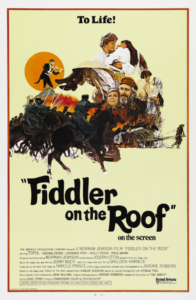
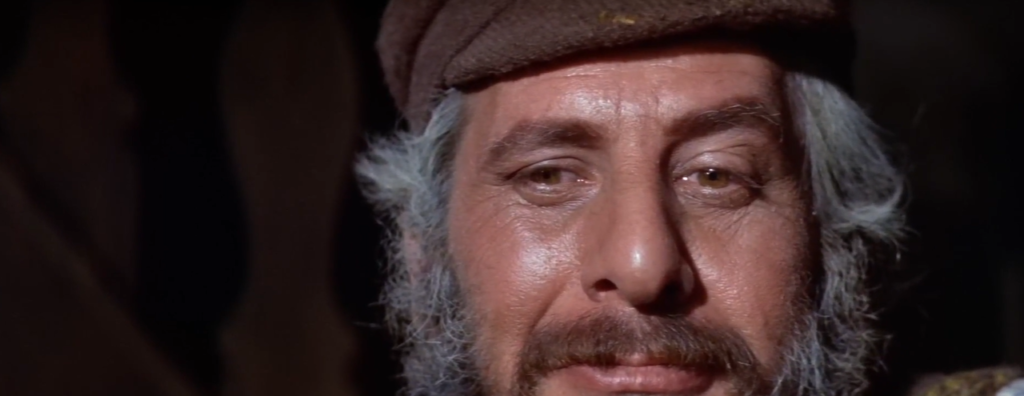
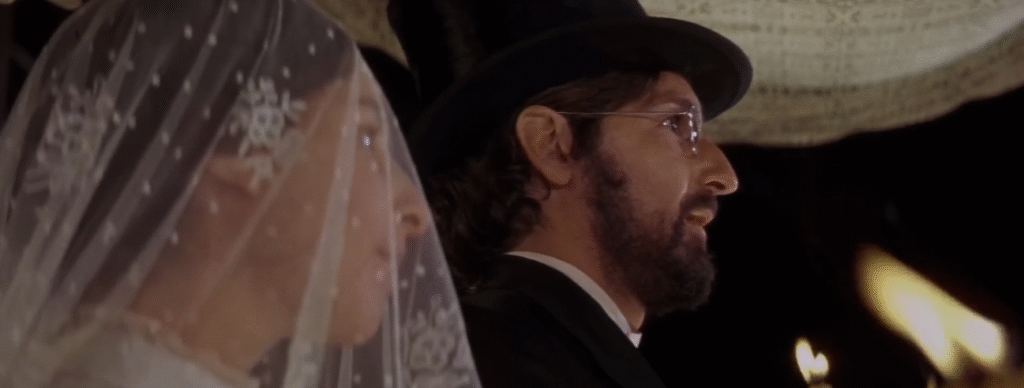
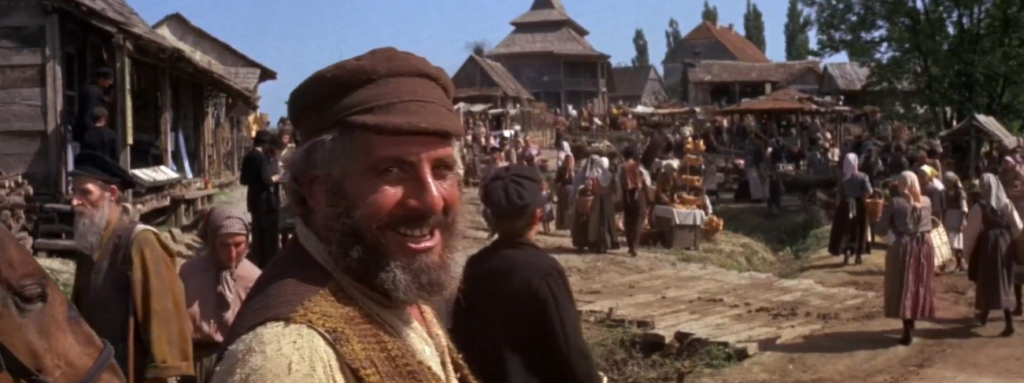
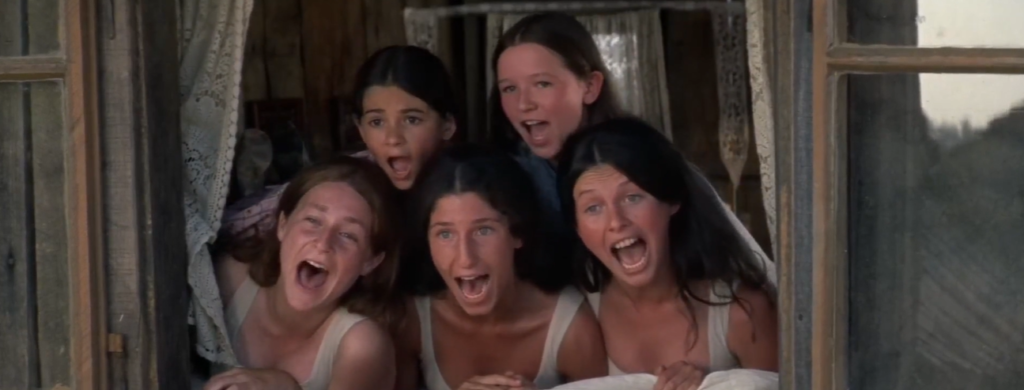
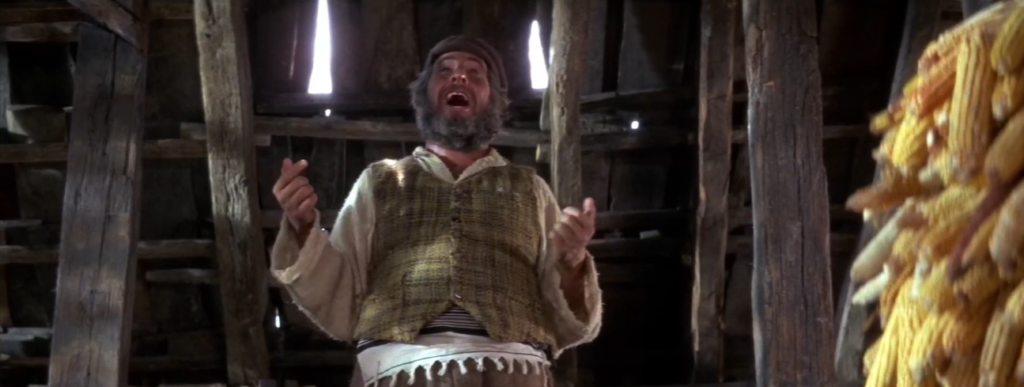
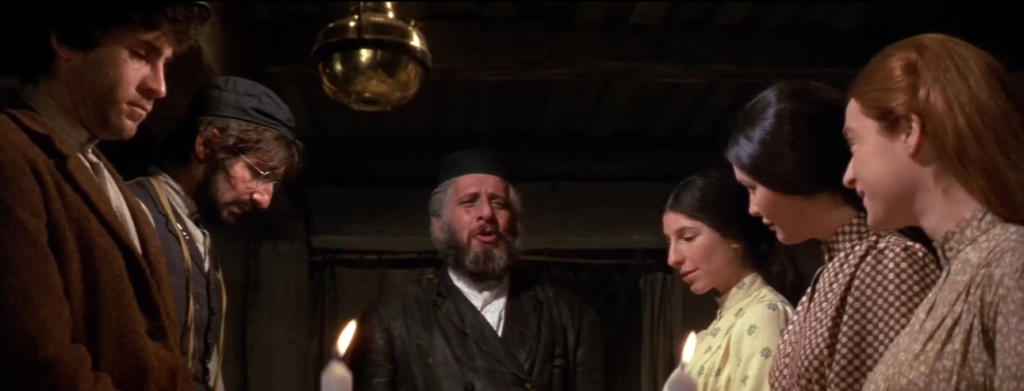
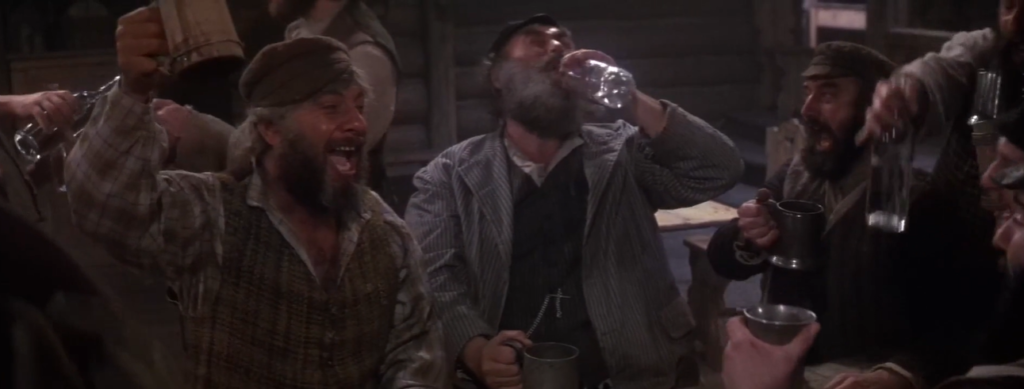
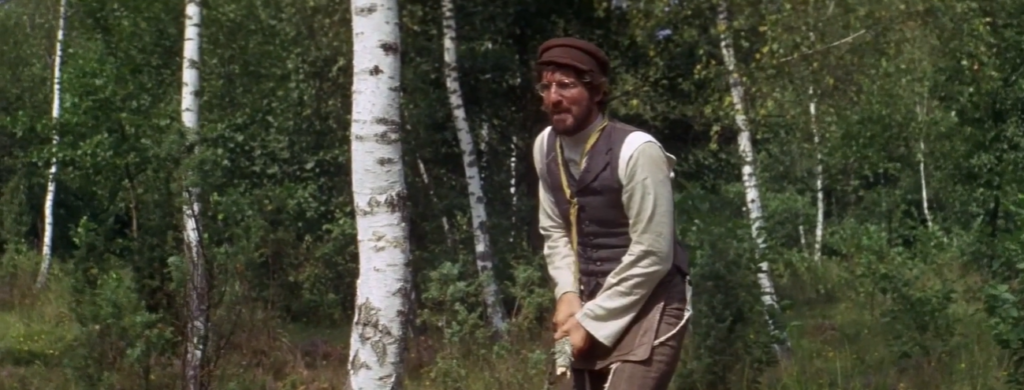
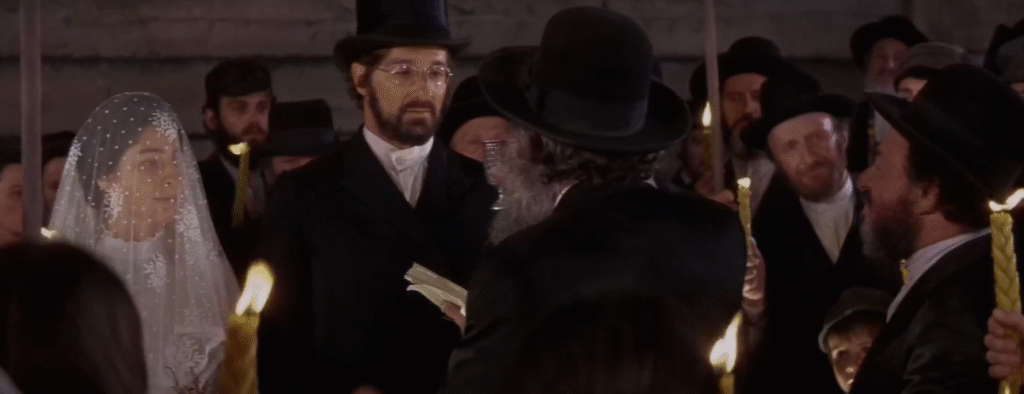
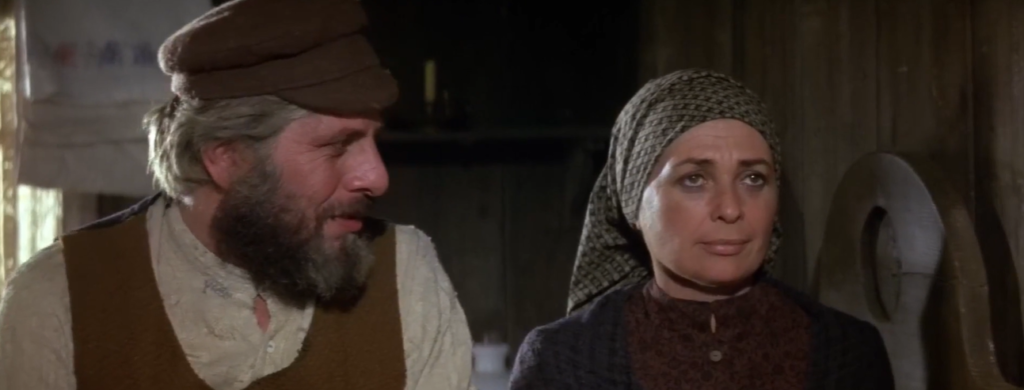
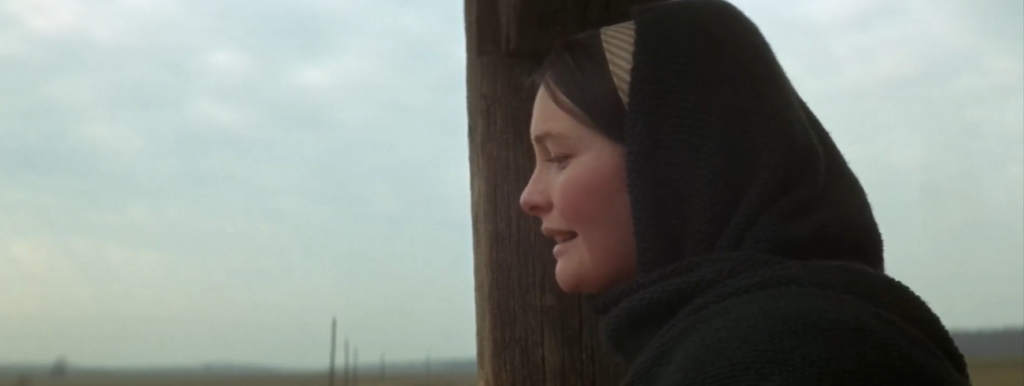
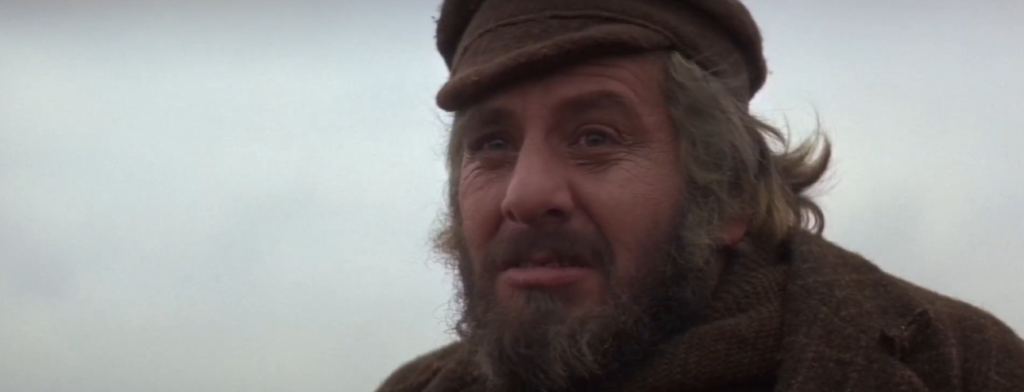
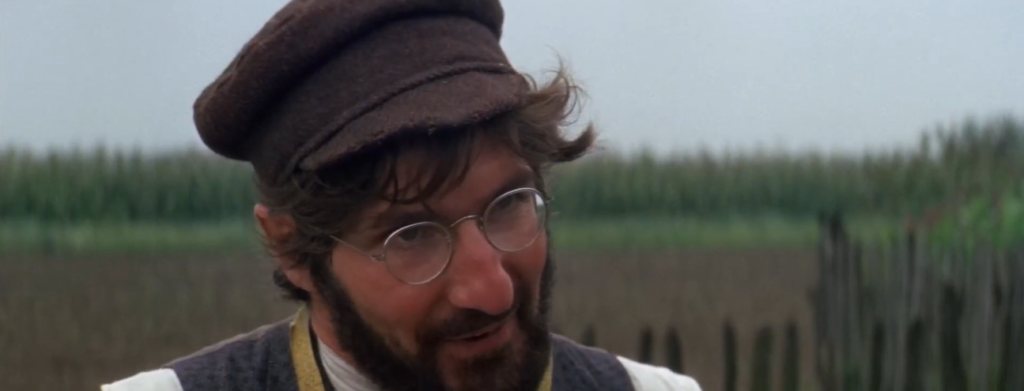
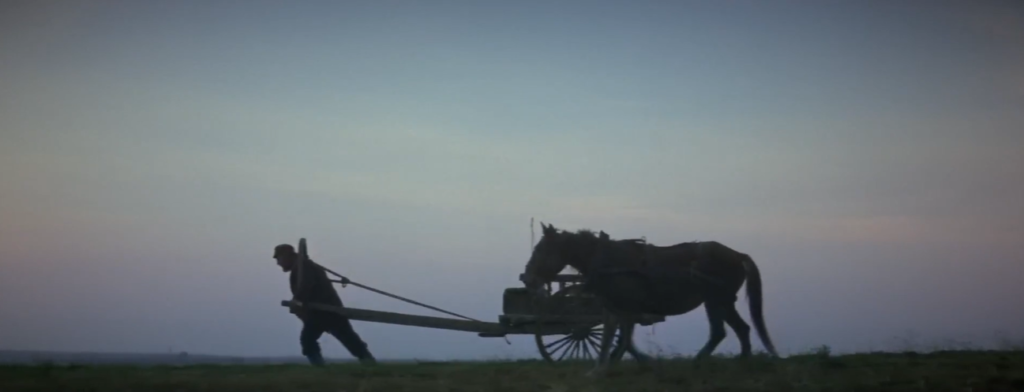
One thought on “Fiddler on the Roof (1971)”
Not must-see, though it has its moments and will, of course, be of interest to those who like musicals or have an interest in the subject matter. As posted (2/22/21) in ‘Film Junkie’ (fb):
“I know, I know. We are Your chosen people. But, once in a while, can’t You choose someone else?”
‘Fiddler on the Roof’: Many years ago, I tried to watch this. I failed. I think, early on, I thought to myself, ‘This is just too… I don’t know; something.’ Too grim? After all, in a sense, it’s a bit like musicalizing the Holocaust. The characters may not actually face torture (though things get a little rough for them late in the film) but their existence is still unrelievedly bleak. Finally, however, I decided to give the film a real shot.
I found it rough-going. But I also kept thinking about what was missing; what the film needed: Zero Mostel (who, as most people know, had triumphed as Tevye on Broadway). Re: not casting him, director Norman Jewison (acc. to Wikipedia) said Mostel’s larger-than-life personality, while fine on stage, would cause film audiences to see him as Mostel, rather than the character of Tevye. As much as I respect Jewison, I find that a lame excuse. On top of that… even if it were true (which it isn’t, really)… who cares?!!
Jewison’s remark about Mostel strongly suggests that Mostel was incapable of both modulation and dramatic depth. To say that is to be ignorant of the actor’s work in general. (Did Jewison not see Mostel in Kazan’s ‘Panic in the Streets’? And what about his later performance in ‘The Front’?) My guess is that Jewison may have anticipated being intimidated by Mostel (I have heard that he could be intimidating) and perhaps he didn’t feel he’d be able to get the kind of performance that he wanted from him. OR… perhaps he just preferred Topol’s tone.
It’s a harsh tale. It cries out for some balance, for that certain humorous quality that only someone like Mostel could have brought to it. As a result… while Topol may have been appropriate to a degree, he mostly contributes to the overall gloom. He can’t even seem to add spark to the one musical number that should guarantee hilarity (‘Tevye’s Dream’).
The film has its moments, esp. near the end: ‘Far from the Home I Love’ and ‘Little Bird, Little Chavaleh’ are particularly touching songs and are nicely performed. But the film’s tone is almost relentlessly… respectful… and robbed of some necessary lighter (sometimes even joyous) moments.
… I also watched the 2019 documentary ‘Fiddler: Miracle of Miracles’ (streaming on Amazon Prime Video). This TERRIFIC (and highly entertaining) doc traces the entire history of the musical (using archival footage, inc. some with Mostel) – and it reveals how the musical is capable of being a much more thrilling experience than what is found in the film.